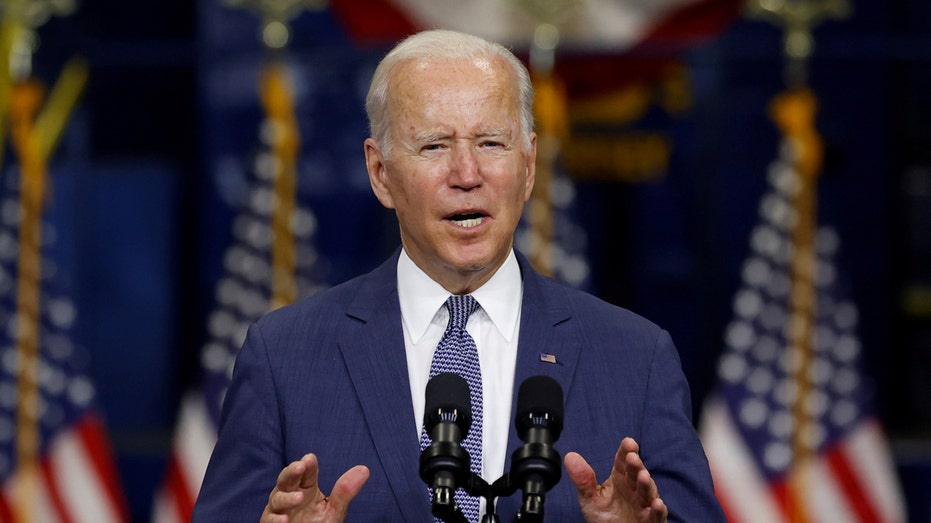Biden spending bill to include $500B toward climate action, chief of staff says
Ron Klain said the spending bill would mark a 'historic investment' toward Biden’s goal of cutting carbon emissions
Stuart Varney: Biden team is in ‘crisis mode’ ahead of Glasgow climate summit
FOX Business' Stuart Varney argues Biden is ‘in trouble’ for wanting a $150 billion emissions program ahead of Glasglow climate summit.
The Biden administration is pushing lawmakers to include more than $500 billion in funding toward climate-friendly energy practices in the Democrat-backed social spending bill, White House Chief of Staff Ron Klain confirmed on Tuesday.
Klain said the spending bill would mark a "historic investment" toward Biden’s goal of cutting carbon emissions. The $500 billion toward climate initiatives would constitute a significant chunk of the spending bill, which is expected to cost approximately $2 trillion, depending on the outcome of ongoing negotiations.
"Just to put that in perspective, the entire Department of Energy over the next 10 years is going to spend $450 billion," Klain said during an appearance at The Hill’s "A More Perfect Union" event. "We’re talking about an investment in climate change larger than the entire Department of Energy. We just now have to go get that done. I think we’re making a lot of progress in that regard."
MANCHIN SAYS CARBON TAX NOT ON THE TABLE ‘RIGHT NOW’

U.S. President Joe Biden delivers remarks on his Build Back Better infrastructure agenda at the NJ TRANSIT Meadowlands Maintenance Complex in Kearny, New Jersey, U.S., October 25, 2021. REUTERS/Jonathan Ernst/File Photo (Reuters Photos)
The spending bill’s climate component has been a key subject of debate between moderate and progressive Democrats. Biden’s original vision for the spending bill called for $600 billion in climate-related investments.

The dome of the U.S. Capitol in Washington. (AP Photo/J. Scott Applewhite) (AP Photo/J. Scott Applewhite / AP Newsroom)
Sen. Joe Manchin, D-W.Va., has effectively blocked the inclusion of Biden’s Clean Electricity Performance Program, a $150 billion initiative that would reward utility firms for transitioning to clean energy and penalize those that do not.

Sen. Joe Manchin, D-W.Va., speaks to the Economic Club, Tuesday, Oct. 26, 2021, in Washington. (AP Photo/Jacquelyn Martin) (AP Newsroom)
While lawmakers have yet to finalize the climate proposals, the spending bill is expected to include various incentives for industrial sector decarbonization, expanded access to green energy systems and grants aimed at rewarding the agricultural sector for cutting emissions, Axios reported, citing a source familiar with the matter.
CLICK HERE TO READ MORE ON FOX BUSINESS
Last week, Biden said Manchin was open to the possibility of shifting funds initially meant for the CEPP toward tax incentives for green energy practices and the development of climate-friendly technologies.





















